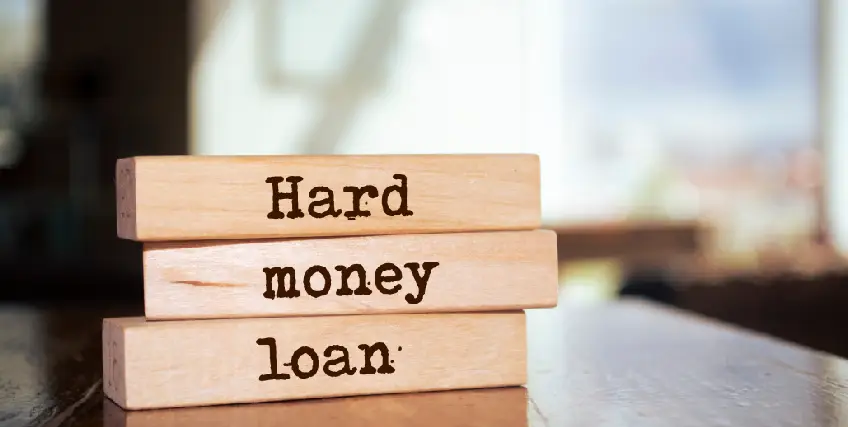What’s the Difference Between an SBA Loan and a Commercial Loan?
October 17, 2025 | Last Updated on: October 17, 2025

Two of the most common forms of business lending are commercial loans and United States government-backed Small Business Administration (SBA) loans. While both types of loans function similarly, there are key differences between them that can make one or the other a clear choice for a commercial loan for small business.
Here’s what you need to know about the eligibility requirements of each, how SBA loans for small business work, and how you can weigh the difference of providers of small business loans.
What are SBA Loans?
A misconception about SBA loans is that the government itself gives out the loan. That’s not the case. SBA loans are acquired much like a commercial loan. The difference is that the federal government guarantees up to 75% of the loan amount. That guarantee acts like an insurance policy for lenders. If a business owner is unable to make the monthly payments and defaults on the loan, the government protects the lender from catastrophic loss.
Keep in mind that there are SBA preferred lenders that specialize in offering these loans, including SBA Express loans.
Types of SBA Loans
There are four main types of SBA loan programs, along with numerous smaller programs and subprograms. Depending on your business needs and eligibility criteria, any one of these loans could be a great choice.
- The 7(a) loan program is the SBA’s most popular choice. A 7(a) loan is a term loans where the lender provides working capital to be repaid with interest over a set term. Really the only difference is that the government protects the lender. You can borrow up to $5,000,000, and the repayment terms can last as long as 25 years.
- The SBA CDC/504 loan program provides capital for buying commercial real estate, an occupied commercial building, or heavy equipment. These loans can be very complicated for lenders and borrowers alike, since they involve multiple financial institutions, a down payment, and two separate loans.
- SBA Microloans average only about $13,000 and are made through non-profits. They can be used as working capital, for equipment purchases, and to buy inventory, but can’t be used for real estate.
Each of these loans can come with a fixed rate or variable rates and are subject to credit approval. So before you apply, it’s in your best interest to ensure your business credit score is as close to perfect as possible.
SBA Loan Qualifications
Regardless of which SBA loan you believe is the best fit for your small business, there are a few SBA loan qualifications to keep in mind before you submit a loan application.
SBA lenders are guaranteed only a percentage of the loan, and that guarantee is taxpayer-funded. They want assurance the borrower can repay that loan. Each loan program comes with additional qualifications. An SBA 504 loan will require a 10% down payment on the planned purchase, as well as adherence to certain job creation criteria. Most SBA loans also require a personal guarantee, meaning the lender can seize your personal assets if you fail to make payments.
What Are Commercial Loans?
Commercial loans function in almost the same way as SBA 7(a) loans, with one seismic difference: The loans aren’t guaranteed by the government. This is a massive difference. Without that safety net, there is much greater risk for lenders. That means commercial lenders must be more strict when it comes to qualifications for borrowers. Being able to get a big commercial loan can require having a very high credit score, a polished business plan, and a personal guarantee.
One of those advantages is that there are more financing options with a non-SBA lender. You can negotiate for better loan agreements and disclosures, longer terms, and even nontraditional repayment. It’s in the lender’s best interest to give qualified borrowers the best possible loan terms to ensure their ability to pay.
For example, if monthly payments can create cash flow issues for your business, some commercial lenders might be willing to allow annual payments. The process of applying for and receiving commercial loans will also tend to be much quicker than it is for SBA loans.
How to Choose Between SBA Loan vs Commercial Loan
Both loan options can make sense for your business. If you’re looking for a quicker and less involved application process, a commercial loan may be your best choice. If you’ve got great credit and are looking for lower interest rates, you may want to work with the SBA.
As with any major financial choice, you should do extensive shopping around before you decide which type of loan is best for you and your business. You may find that a commercial loan will be fast, favorable, cheaper, and simpler. Or you may find that the SBA has a program that’s a perfect fit.
Keep in mind that you can use one type of loan to create a favorable credit history for future loans. A strong history with a short-term commercial loan now can mean a higher credit score and lower interest rates on a larger SBA loan in the future. Alternatively, good performance repaying an SBA loan now could make a commercial lender be more willing to lend you money in the future.
Final Thoughts on SBA Loans for Small Businesses
Entrepreneurs can take advantage of both commercial loans and SBA loans for small businesses for a wide variety of business expenses, including business acquisitions, startup costs, and more. But qualifying for either of these options requires that your business credit score must be in good shape.
FAQs about SBA Loans for Small Businesses
Is it hard to get an SBA business loan?
It can be difficult, but the advantageous loan terms can make the effort worth it.
What is an SBA loan?
An SBA loan is offered by the U.S. small business administration to business owners who need financial assistance. Additionally, businesses in a declared disaster zone may qualify for low-interest loans to get their businesses up and running.
What are the current interest rates for SBA loans?
Interest rates for SBA loans vary based on the type of the loan and other terms of the loan.
Can you refinance a SBA loan?
Yes, you can refinance a SBA loan. However, refinancing into another SBA loan isn’t an option. You must use a different loan originator like a line of credit from a private bank.
Frequent searches leading to this page
Recent Articles
Related Articles
When it May Be Beneficial To Go with Hard Money Lenders Instead
December 4, 2025
Smart Steps to Getting the Lowest Rates on Your Business Investment Loan
December 2, 2025
Construction Loans for Heavy Industrial Projects: Navigating Large-Scale Buildouts
December 2, 2025




